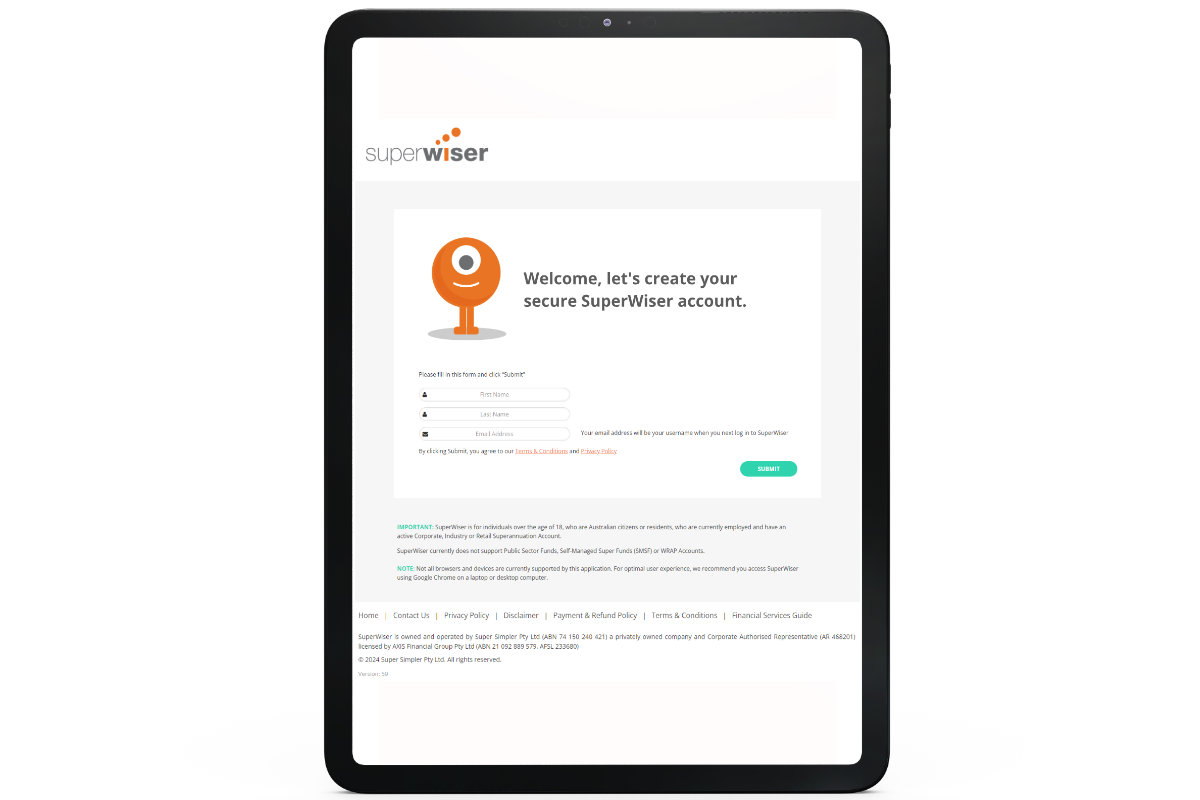SIMPLE TRUTHS
Much is said about super, usually either negative or uninformative, making many people hesitate to engage with and optimise it as a personal asset. Most younger people tend to dismiss super as it relates to their long-term financial future. Yet most older people in the final stage of their career before retirement often wish they had made wiser decisions when they were younger.
The simple truth is that life happens, and most people will make mistakes. What is essential is to learn from the experience and adjust your situation accordingly to improve your circumstances.
Super is an area where mistakes and regrets are common, but when you better understand how super works and actively manage it, there is a significant opportunity to end up with an asset well beyond initial expectations.
VALUABLE ASSET
The introduction of compulsory super by Paul Keating back in the nineties is to be praised. However, over the years, there has been much interference and tinkering with new regulations regularly introduced. Despite the inefficiencies still associated with optimally managing super as a personal asset, the nation’s pool of super assets has grown to $3.85 trillion.
Super can be one of your most valuable assets for retirement, ultimately allowing you to fund your desired lifestyle in retirement. When commencing employment, your balance starts small. When managed effectively, it can quickly accumulate into a six-figure balance in about ten years, accelerating from there.
TECHNICAL SKILLS
While the technical skills you need to manage super effectively are hard to acquire, the decisions you need to make to optimise your balance (and thereby your projected income in retirement) become easy when you have access to appropriate information in the following areas:
- Product: Knowledge of all current super product options, including their functionality and value proposition in managing your asset at an individual account level.
- Fees and Costs: Understanding the cost structures within products based upon administration fees and insurance premiums and outside of super for premiums on standalone insurances.
- Contribution: Strategically using salary sacrifice to reduce personal income tax whilst boosting your super balance. A modest salary sacrifice over the long term has the potential to be more effective than making large amounts as you approach retirement.
- Investment: Undertaking an active investment strategy in investing your asset globally, consistent with market conditions covering asset allocation by geography and currency considerations.
Most individuals do not possess the specialised financial skills needed to generate this type of information. The acquisition of such skills would indeed be a full-time occupation.
For individuals who fall into this category, there are benefits to engaging with a financial professional who can offer valuable yet affordable super optimisation advice.

GOALS AND OBJECTIVES
Any significant asset needs active financial management. To effectively manage super, you need a target future goal of projected income in retirement (expressed in today’s dollars). Defined short-term milestones provide a measure to track progress towards set goals. Ongoing tactical updates are also necessary as circumstances and conditions dictate.
As you progress through your career, your circumstances change as your time horizon shortens and your balance accumulates. Early in your career, you chase growth and will therefore expose your super asset to shares and property. As you age and your super balance grows, a more defensive position is required (eventually), where a higher proportion of the asset is invested in cash and fixed interest.
To personally target super as a key source of income in retirement, you need some financial awareness of your investment portfolio and the rationale behind any investment advice and subsequent modification to your investment strategy. As a personal asset, it is better to manage super actively. This means making regular strategic adjustments based on ongoing 2-year market outlooks.
No matter your age, super is important. Failing to manage it appropriately can have significant financial consequences.
SUPER OPPORTUNITIES
There are always unknown surprise opportunities to optimise your super further that can arise with changes to legislation and regulations and when you get close to retirement. So, keeping up to date with available options is advisable.
Whenever your job circumstances change, such as getting a promotion or changing employer, always ensure you review your super strategy and recalibrate your goals and milestones. Later in life, you might want to go part-time as a halfway step towards full retirement. A transition to retirement strategy could become beneficial at this point.
Access to relevant information and specialist knowledge is essential to manage super optimally.
HELP IS AVAILABLE
Not knowing what to do with your super and when to do it results in missed opportunities, mistakes, and sub-optimal retirement outcomes.
Irrespective of who your super is with, SuperWiser is an online resource everyone can use to obtain affordable advice and services to optimise super.
Create your secure SuperWiser account using your email address and then follow the instructions on screen.
Alternatively, call 1800 467 467 to discuss your options.


